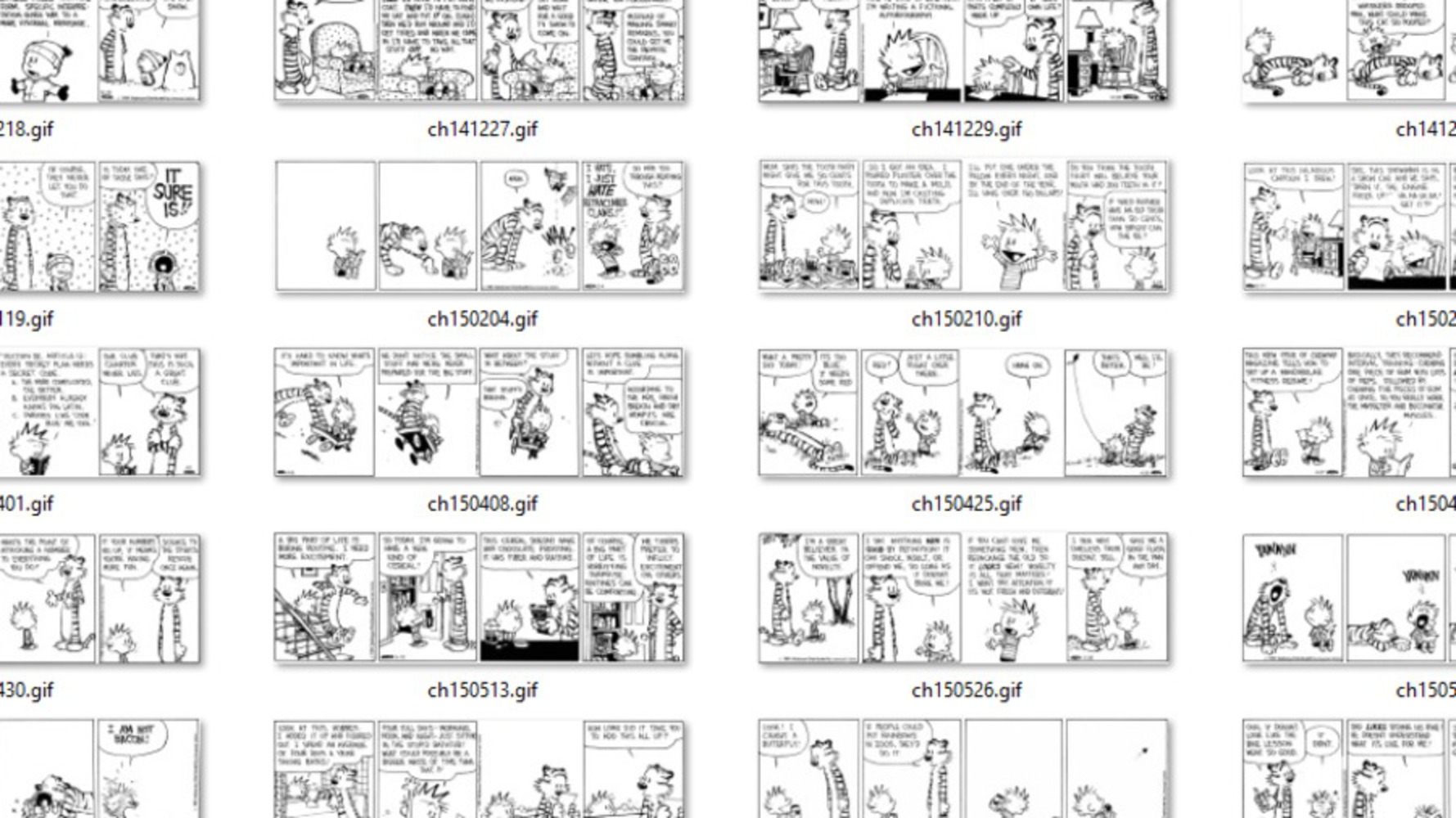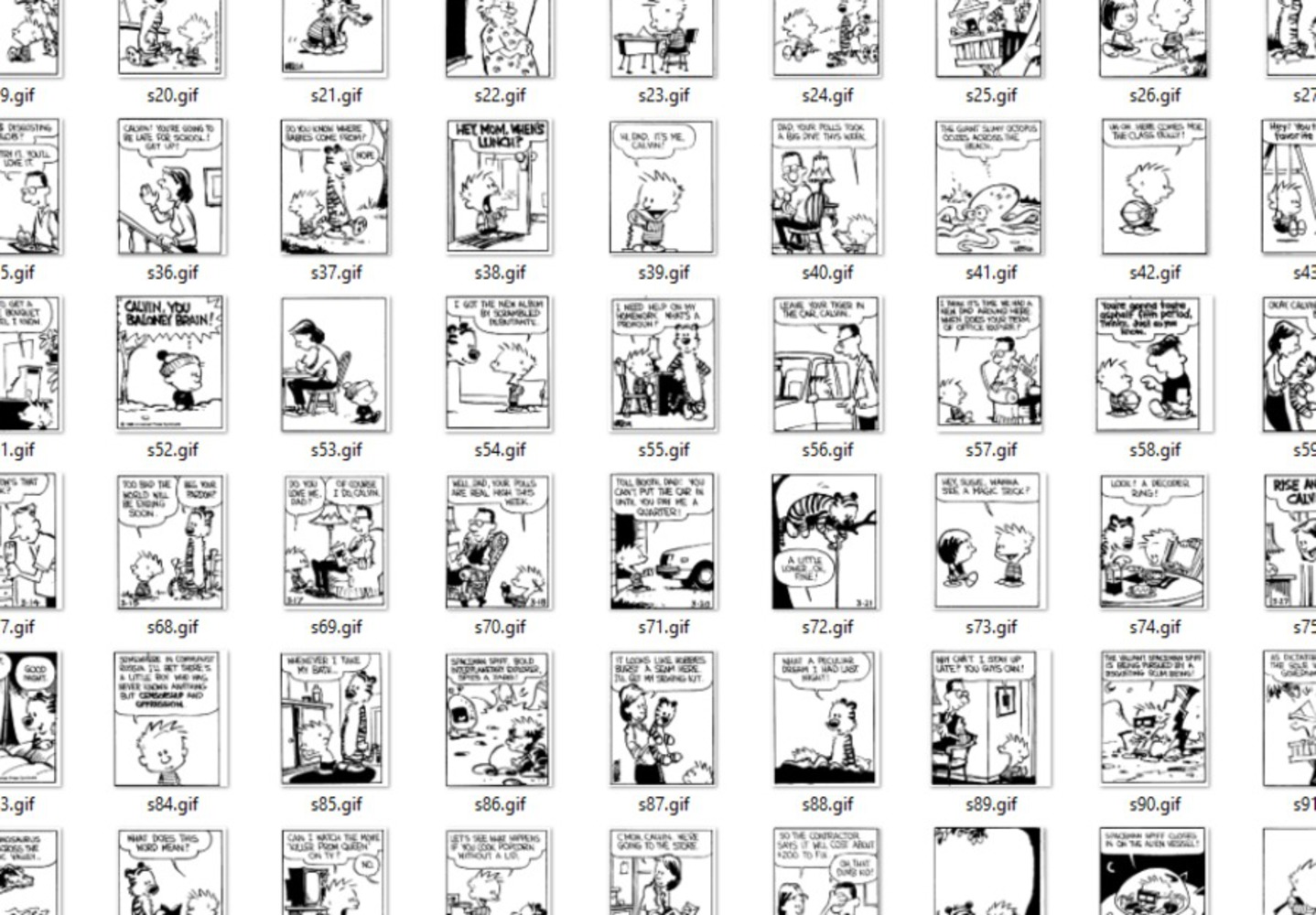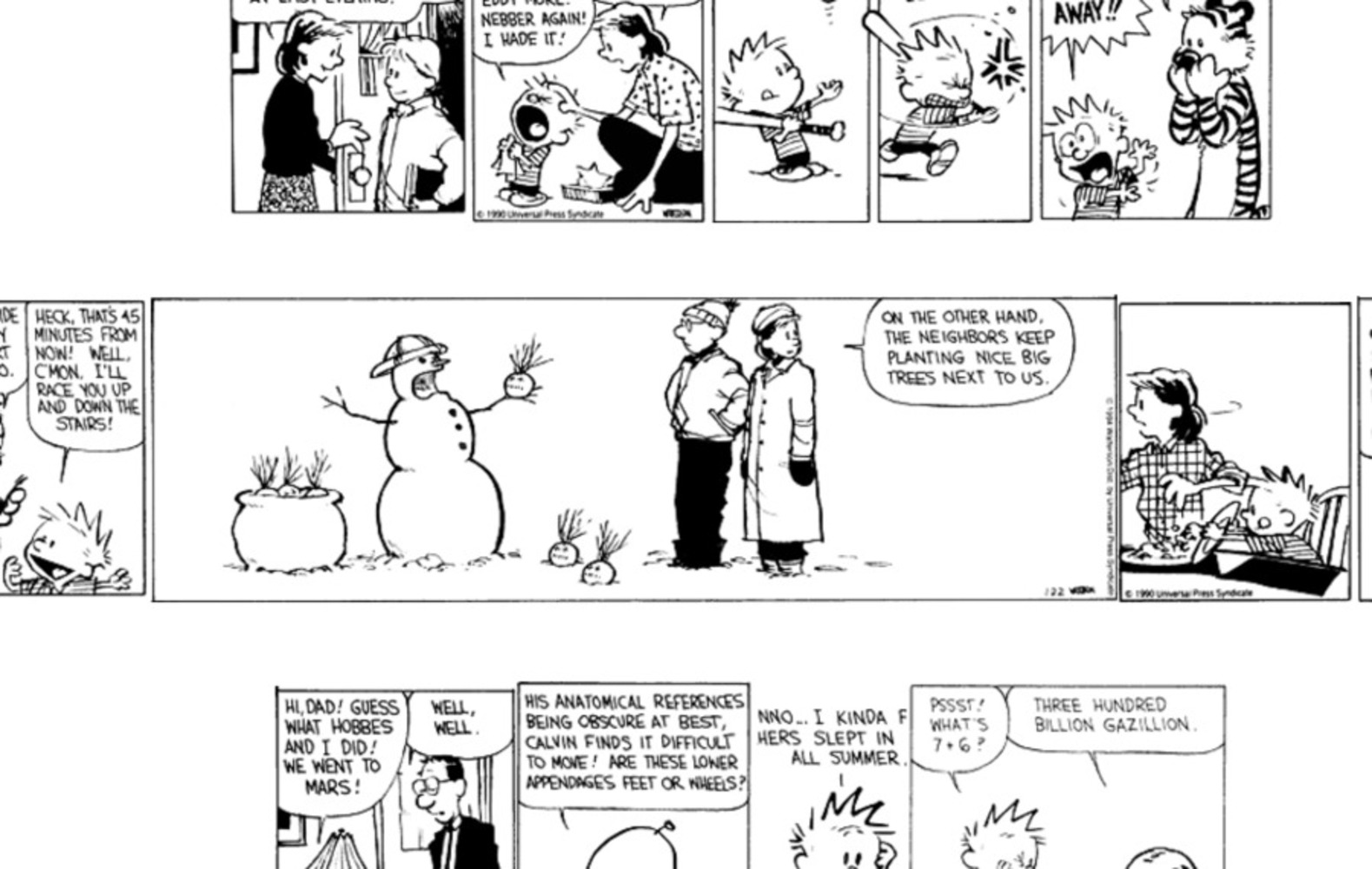Calvin & Hobbes
The comic Calvin & Hobbes has proven to be one of the most timeless and influential comics of the last century. Though it ended before I was born, I grew up reading it and now own the entire hard-cover set of Bill Watterson's work. I decided to create a Calvin & Hobbes generator that would grind up all the existing comics (spanning over a decade) and spit out new ones from the pieces. Proving to be harder than I initially imagined, I threw machine learning at the problem and created a tool that, when trained with enough data, can reproduce sensible, if not funny, comics.


